This article was co-authored by Joshua Ellenhorn, MD. Joshua Ellenhorn, MD, is a board certified surgeon with advanced training in the fields of surgical oncology, minimally invasive surgery, and robotic surgery. He runs a private practice at Cedars-Sinai Medical Center in Los Angeles, California and is a nationally recognized leader in surgery, cancer research, and surgical education. Dr. Ellenhorn has trained more than 60 surgical oncologists and has spent over 18 years in practice at the City of Hope National Medical Center, where he was a professor and the chief of the Division of General and Oncologic Surgery. Dr. Ellenhorn performs the following surgical procedures: gallbladder surgery, hernia repair, colorectal cancer, skin cancer and melanoma, gastric cancer, and pancreatic cancer. He earned an MD from the Boston University School of Medicine, completed fellowships at the University of Chicago and Memorial Sloan-Kettering Cancer Center and finished his residency in surgery at the University of Cincinnati.
There are 10 references cited in this article, which can be found at the bottom of the page.
wikiHow marks an article as reader-approved once it receives enough positive feedback. In this case, 95% of readers who voted found the article helpful, earning it our reader-approved status.
This article has been viewed 86,493 times.
Almost everyone has to undergo a colonoscopy at some point in their life. A colonoscopy is a procedure that allows the doctor to examine the lining of your large intestines, using a thin flexible tube with a small camera attached (called a colonoscope). This procedure is used to look for growths, such as ulcers and tumors, identify any inflammation or bleeding, and to possibly take a tissue sample.[1] It's important to take the necessary preparations to ensure you're all squeaky clean for the procedure, and we'll fill you in on how to clean yourself out in both the week and days beforehand.
Things You Should Know
- Stop taking medications or blood thinners indicated by your doctor a week before the procedure.
- Eat only low-fiber foods for 2 days before the colonoscopy, and cut small, granular foods like popcorn or seeds.
- Flush your system with your prescribed medication at 4 p.m. the day before your colonoscopy.
- Empty your bowels and only consume clear fluids on the day of the procedure.
Steps
The Week Before
-
1Stop taking certain medications and supplements 7 days before the procedure. This is important, as the following medications are known to cause bleeding during the procedure: iron supplements, Motrin (ibuprofen), Aleve (naprosyn), sulindac and any other non-steroidal anti-inflammatory drug (NSAID). If necessary, Tylenol for pain is acceptable.[2]
- Discontinue the use of fiber supplements, including FiberCon, Metamucil and Citrucel. Also discontinue taking all non-prescription Vitamin E and herbal supplements.
- The medications Aggrenox and Plavix are designed to keep your blood from clotting. It is important that you ask your physician if you can stop taking these medications for some time before your colonoscopy. You should be able to resume taking your medication after your procedure is complete.
- If you take an aspirin regimen due to a history of heart disease/stroke, ask your doctor if you should continue taking it. They will examine your personal medical history before giving you advice.
-
2Stop blood thinners at least 5 days before the test, if advised by your doctor. In most cases, you should stop taking blood thinners like Coumadin five days before your colonoscopy procedure. However, you should always contact your physician before discontinuing any prescription medication.[3]Advertisement
-
3Avoid certain foods from 3 days before your procedure. Three days before your procedure, you should discontinue eating popcorn, nuts and seeds, as these can become lodged in the colon and affect the outcome of your colonoscopy.
-
4Start a low residue diet 2 days before the colonoscopy. A low residue diet consists of foods that are low in fiber. Fiber is more difficult for the body to digest.[4]
- A low residue diet restricts the consumption of foods that are known to leave a residue in the gastrointestinal tract. which is why this diet is beneficial for the colon cleaning process.
- Foods that are encouraged on a low residue diet include: Fish, eggs, chicken, soup, clear fruit juice (apple or white grape), limited consumption of coffee or tea (no milk products added), sports drinks – lemon, lime and orange (no red), bouillon, crackers, bread, pasta, plain yogurt, broth, gelatin (Jello) – lemon, lime and orange (no red), potato (minus the skin), popsicles (no red)
- On the other hand, the following foods should be avoided because they can leave a residue in your colon, which can make it difficult to get accurate results: all vegetables, orange juice, dried fruits, fresh fruit, seeds, nuts, raisins, cloves, all meat except chicken and fish.
The Day Before/Of
-
1Prepare to empty your colon. In order to prepare for a colonoscopy, you need to cleanse your colon by emptying your bowels. Some physicians give their patients ‘prep kits.’ If your physician gives you a prep kit, follow the directions for that particular kit.[5]
- During the prepping phase, you can only drink clear fluids. If you consume anything besides clear liquids and the prep products listed below (or given to you by your physician), the radiologist may not be able to provide your physician with accurate results.
-
2Drink enough water to prevent dehydration. Some patients suffer from dehydration while prepping for their colonoscopy, so make sure you drink plenty of clear fluids.
- The Dietary Reference Intakes (DRI-established in 2004) recommends men have a daily water intake of approximately sixteen 8 oz. cups a day. The DRI recommends women drink eleven 8 oz. cups of fluid daily.
- The best way to determine if you are getting enough water/fluids is to look at the color of your urine. If your urine is straw colored, you are hydrated; dark urine is an indication that you are dehydrated.
- Your body will also help you determine if you are drinking enough fluids. If you feel thirsty, your body is telling you that you need more fluids.
-
3Pick up or assemble your prep kit, as advised by your doctor. Your doctor might prescribe a prep kit for you to use. If your physician did not give you a prep kit, they may advise you to purchase the following non-prescription items:
- A package of 4 Bisacodyl tablets – 5 mg (Dulcolax, Correctol, Bisacolax or Doxidan).
- 64 oz of a non carbonated, clear liquid drink (Propel, Gatorade or Crystal light). If you are diabetic, you can use sugar-free Gatorade.
- 8.3 oz (238 grams) of Polyethylene glycol 3350 powder (Clearlax, MiraLAX, GaviLAX or Purelax). You can find these products in the laxative section of your local pharmacy or department store.
-
4Follow special precautions if you are diabetic. If you have diabetes, use sugar-free beverages for your prep. If you take insulin, ask your doctor how much you should take during your cleanse. Follow all of your doctor's instructions.
- If you do not take insulin, ask your doctor if you should take your diabetic medicine on the morning of your procedure.
- Monitor your blood sugar throughout the prepping process.
-
5Flush your system on the evening before your colonoscopy. At 4 p.m.on the evening before your colonoscopy, take all 4 of the 5 mg Bisacodyl tablets (Dulcolax, Correctol, Bisacolax or Doxidan).[6]
- At 6 p.m. take a pitcher and fill it with 64 oz of the clear, non-carbonated beverage you purchased (Gatorade, Propel or Crystal Light).
- Mix in the 8.3 oz of Polyethylene glycol 3350 (Clearlax, MiraLAX, GaviLAX or Purelax). Stir well, until the powder dissolves completely.
- Drink ½ (32 oz.) of the mixture. You should drink 8 oz. every 15 minutes. If you want, you can drink it through a straw.
-
6Make the final preparations on the day of the colonoscopy. 5 hours before your colonoscopy, drink the remaining 32 oz. of the clear, non-carbonated mixture.[7] Unless otherwise directed, you will take nothing by mouth (food or drink) for at least 3 hours leading up to your colonoscopy. Additionally, you should:
- Wear comfortable, loose clothing.
- If your doctor has advised you to take any medications, take them by mouth with a sip of water.
- Leave your valuables at home (including jewelry).
- Make a list of all your medicines so they can be added to your chart.
Warnings
- The colon prep causes loose, frequent stools in order to cleanse the bowels, there it's a good idea to remain at home, near a bathroom, on the day before the exam.⧼thumbs_response⧽
References
- ↑ https://www.nhs.uk/conditions/colonoscopy/why-its-done/
- ↑ https://www.niddk.nih.gov/health-information/diagnostic-tests/colonoscopy
- ↑ https://www.niddk.nih.gov/health-information/diagnostic-tests/colonoscopy
- ↑ https://www.health.harvard.edu/diseases-and-conditions/preparing-for-a-colonoscopy
- ↑ https://my.clevelandclinic.org/health/diagnostics/4949-colonoscopy
- ↑ https://www.nhs.uk/conditions/colonoscopy/getting-ready/
- ↑ https://my.clevelandclinic.org/health/diagnostics/4949-colonoscopy
- http://www.arizonadigestivehealth.com/colonoscopy-moviprep/
- Dobie, Kathleen, and Carol Burke. Colonoscopy for Dummies: Special Edition. Hoboken, NJ: Wiley, 2011. Print.
- National Research Council. Dietary Reference Intakes for Water, Potassium, Sodium, Chloride, and Sulfate. Washington, DC: The National Academies Press, 2005.
- Ladau, Kristina. Be Healthy, Be Happy. N.p.: J. Christa Thomas, 2012. Print.
- Marian, MS, RD, CNSD, Mary, Cynthia Thompson, MS, RD, CNSD, Michael Esser, MD, and James Warneke, MD. "Section 3: Surgical Diets." Surgery Nutrition Handbook. New York: Chapman & Hall, 1996. 38. Print.
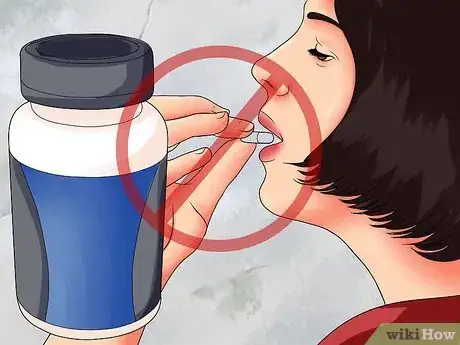
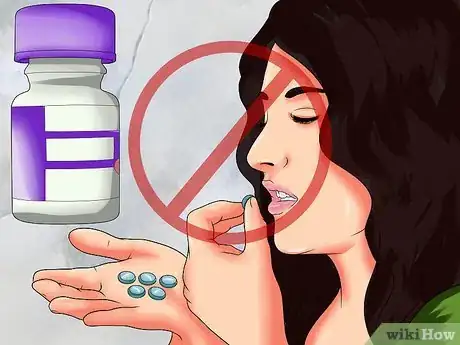


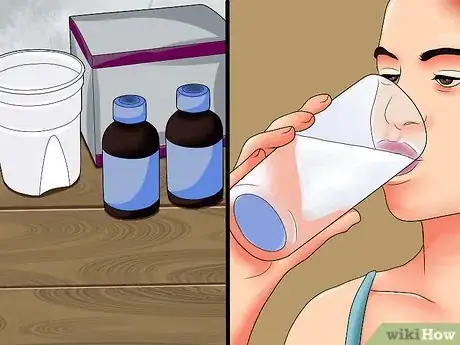

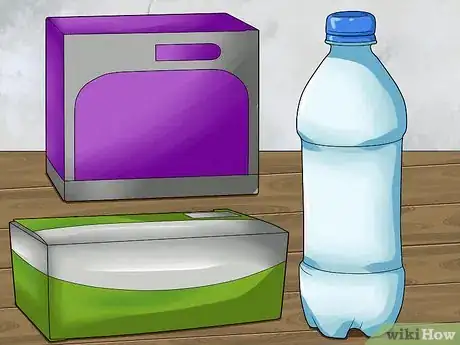

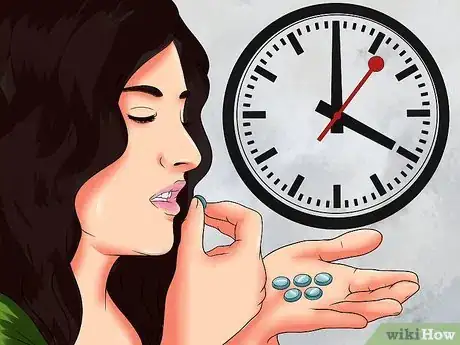





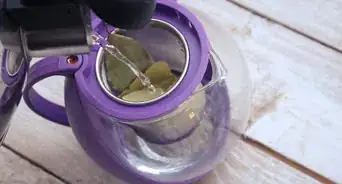

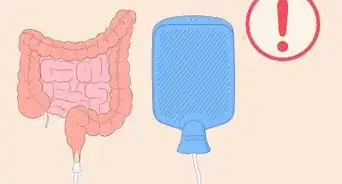




















































Medical Disclaimer
The content of this article is not intended to be a substitute for professional medical advice, examination, diagnosis, or treatment. You should always contact your doctor or other qualified healthcare professional before starting, changing, or stopping any kind of health treatment.
Read More...